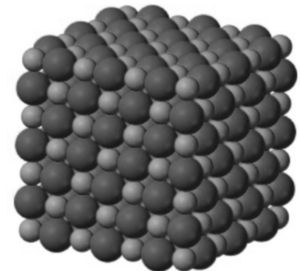Answer: Rigidity is the ability of a solid to maintain its shape while it changes. That is, when an external force is applied to a solid substance, the shape will remain unchanged.
Properties of molecules in the three forms of matter:
Solids are densely packed molecules that make them challenging to work with. When not constrained, it maintains its shape and density. Due to their repulsive forces, atoms or molecules of matter in the solid-state are normally compressed as tightly as possible
Due to weak intermolecular interactions, the molecules in a liquid are packed tightly together. These forces are less intense than those of solids but more powerful than those of gases. Liquids have a large space gap between their molecules, which makes them easier to flow
The gaps between the molecules are vast in gases. The intermolecular forces between them are insignificant. Hence, translational, rotatory, and vibratory motions are dominant in gases
Thus, out of the three forms of matter solids have the most packed molecules giving them a definite shape and rigidity in comparison to liquids and gases. Solids are held together by bonding forces that draw atoms and molecules together.
Interatomic forces hold the atoms in solids together. In a solid’s structure as shown above, the average placement of the atoms does not change throughout time. The kinetic energy of the atoms is negligible since they have almost no mobility. A solid’s lack of motion is what makes it rigid.
 Profile
Profile Settings
Settings Refer your friends
Refer your friends Sign out
Sign out







